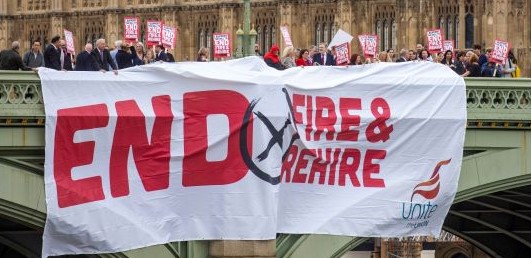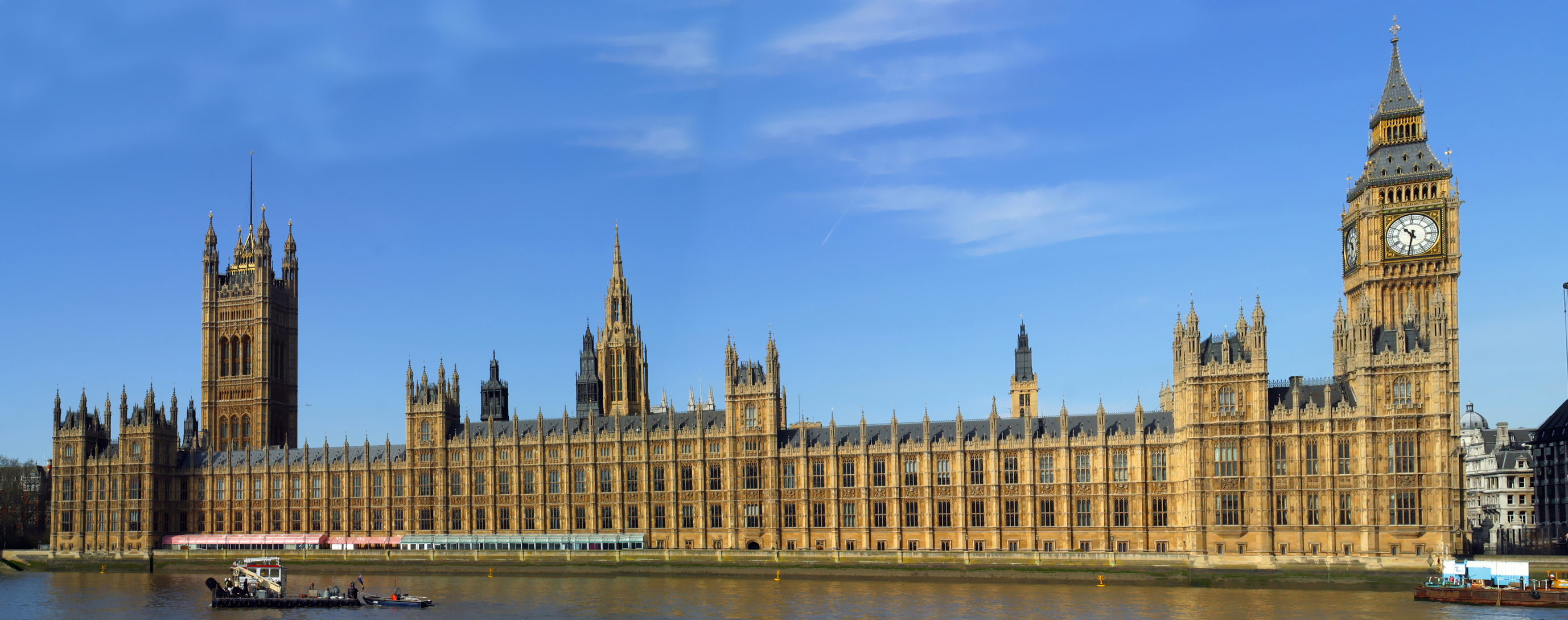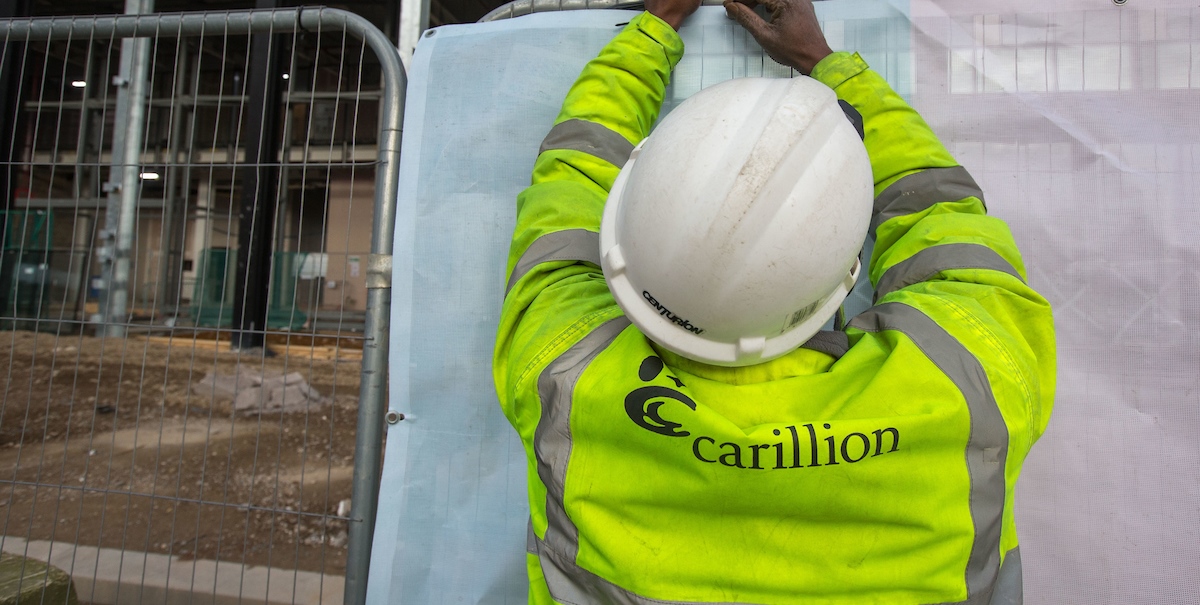â€Beggars belief’
Failed outsourcing firm Carillion continued making huge pay outs to its shareholders even as the hole in its pension fund grew in the seven years before the company went bust, it has been revealed.
Shareholders were paid out £500m in dividends over the last seven years, with the highest amount paid the year before the company collapsed – nearly £80m in 2016.
The revelations come as the Labour party yesterday (January 24) tabled a motion that will force the government to reveal key documents about its dealings with Carillion after the company issued a series of profit warnings.
Labour believes the government did not follow its own risk management procedures — it continued giving Carillion contracts even after the firm itself admitted it was in financial trouble.
“The government’s specific guidance from its Strategic Risk Management policy states that where a company issued a profit warning government departments should be advised to refrain from awarding contracts to that company in the future,” explained Labour’s shadow business secretary Rebecca-Long Bailey.
“Despite not just one profit warning, but three profit warnings, the government went on to award over ÂŁ2bn worth of contracts to Carillion.”
When a company issues a profit warning it is deemed to be â€high risk’ by the government and its procedures require that a Crown Representative develop an improvement plan – which Labour believes never happened.
Through last night’s opposition day debate motion – which was passed without a vote – Labour can now force the government to make these plans public using the same parliamentary procedure it successfully used to force publication of Brexit impact reports.
The opposition day debate was held as it was revealed that the transport secretary Chris Grayling approved a ÂŁ62m contract with Carillion to upgrade the track between London and Corby, Northants, in November — a full month after the Ministry of Defence stopped giving the firm contracts because of its financial ill-health.
Government slammed
Opening the debate was Labour’s shadow cabinet officer Jon Trickett, who slammed the government over a new list it had produced of six firms which will take over Carillion’s old contracts – a list that he said showed the government had learned nothing from the Carillion crisis.
“What a catalogue of failure,” Trickett said, highlighting the six firms.
“One of the six firms donated money directly to the Tory party. Two of the firms are known for blacklisting workers. Amazingly, one of the firms is currently under investigation by the Serious Fraud Office for suspected offences of bribery and corruption. Another has previously been caught red-handed mispricing contracts, underestimating their eventual cost. As a consequence, £130 million was wiped off its share value.
“Another of the companies operates in the Cayman Islands and has been shown to use that location as a way of avoiding tax,” he added. “Another of the firms is part of a group that has reportedly abused and exploited migrant workers in Qatar.
“My reaction to all that—I do not know whether it is unparliamentary—is to use three letters: WTF! What were the Government doing producing a list of that kind?”
Trickett went on to slam the government for continuing to give Carillion contracts even after so many signs showed the company was in deep trouble – not only had the firm issued three profit warnings last year but its shares were the most shorted in the stock market, meaning investors were betting that the company would fail.
Winners
One of the biggest winners of this betting that Carillion would collapse was the world’s largest fund manager BlackRock – a firm which last year hired former Tory chancellor George Osborne on a salary of £650,000 to work one day a week as an adviser.
Labour also grilled Tory MPs over the appointment of Crown Representatives who are supposed to oversee big public sector contracts such as Carillion’s – many of them are Tory Party donors and some oversee contracts related to their own private sector work. Shockingly, the Crown Representative position overseeing Carillion contracts was left vacant in the months before the firm collapsed.
After last night’s motion passed, the government will be forced to submit crucial documents over Carillion and other public sector contracts to the Public Accounts Committee, but Cabinet Office minister David Lidington vowed to fight the release of certain documents into the public domain even if the motion passed — he argued that some documents could be “commercially sensitive”.
Unite assistant general secretary Gail Cartmail slammed the government for failing to learn the lessons of Carillion’s collapse.
“It’s been less than two weeks since Carillion tumbled like a house of cards and the government has already drawn up a list of private firms to take over those contracts whose credentials are just as murky – firms that blacklist workers; that ferret away cash in tax havens; that are even under investigation by the Serious Fraud Office! It truly beggars belief.
“Forcing the government to release risk assessment documents is an important first step in getting to the bottom of the Carillion crisis – and for this Unite applauds Labour in its successful motion yesterday. But only a full public inquiry and an end to private sector contracts in public services will ensure another Carillion never happens again.
“That the Cabinet Office minister has said he will seek to stop these documents from being made public because of â€commercial sensitivities’ shows just how little regard this government has for workers or taxpayers. Make no mistake – the Tories will always bow to commercial interests first no matter the price the rest of us must pay.”
 Like
Like Follow
Follow


